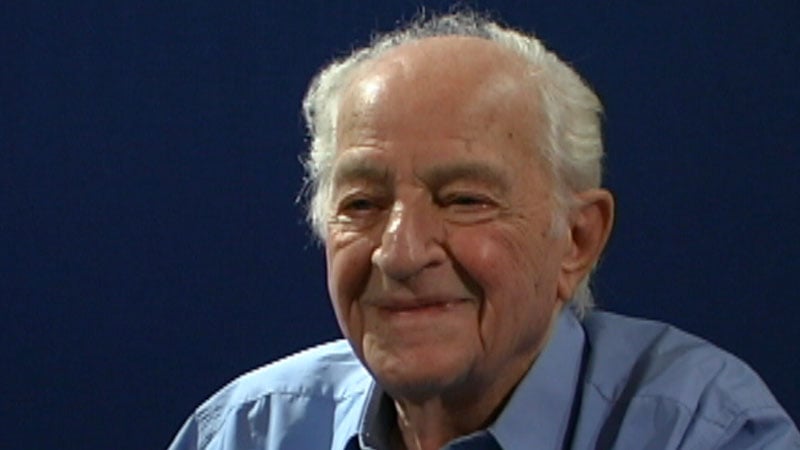Visual History with Jules Dassin
Interviewed by:Bruce Goldstein
Jules Dassin originally started out as an actor and was a member of the Yiddish ARTEF (Arbeter Teater Farband) Players in New York remaining a member of the troupe until 1939. He quickly realized he was more interested in directing and was invited to Hollywood in 1940 as an apprentice to Alfred Hitchcock on the set of Mr. and Mrs. Smith (1941). Dassin made his directorial debut with the short, The Tell-Tale Heart in 1941 and was signed to a contract with MGM. While filming Night and the City (1950), Dassin was accused of affiliation with the Communist Party. In 1951, directors Edward Dmytryk and Frank Tuttle reported Dassin to the House Un-American Activities Committee (HUAC). Dassin refused to testify and was eventually blacklisted in 1952, moving to Paris at the behest of producer Darryl Zanuck. In Europe, Dassin filmed several of his most successful films during the 1950s and 1960s, including Never on a Sunday, for which he was nominated for Best Director and Best Screenplay at the Academy Awards.
Dassin was a DGA member during Hollywood's anti-Communist era and was present during the historical meeting that took place on October 22, 1950 in which Cecil B. DeMille attempt to oust Joseph Mankiewicz from Guild leadership.
Dassin passed away in March 2008.
Select Viewing Option:
Highlights

Dassin describes his crowd control techniques while shooting Naked City.
Jules Dassin / Highlight1
Dassin describes his crowd control techniques while shooting Naked City.

